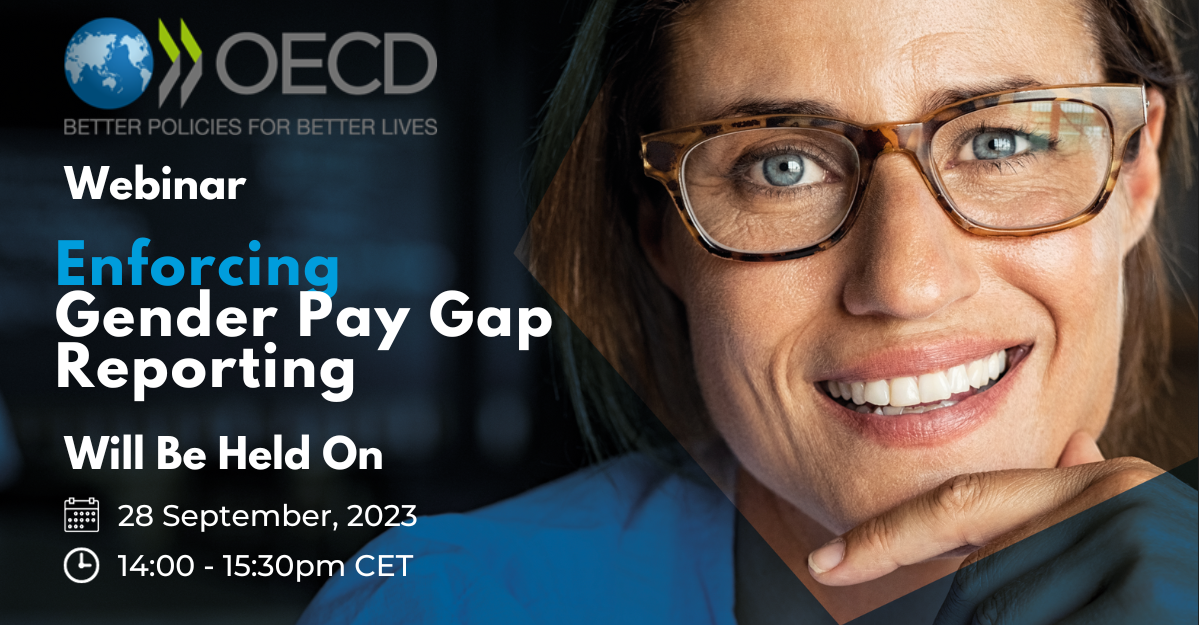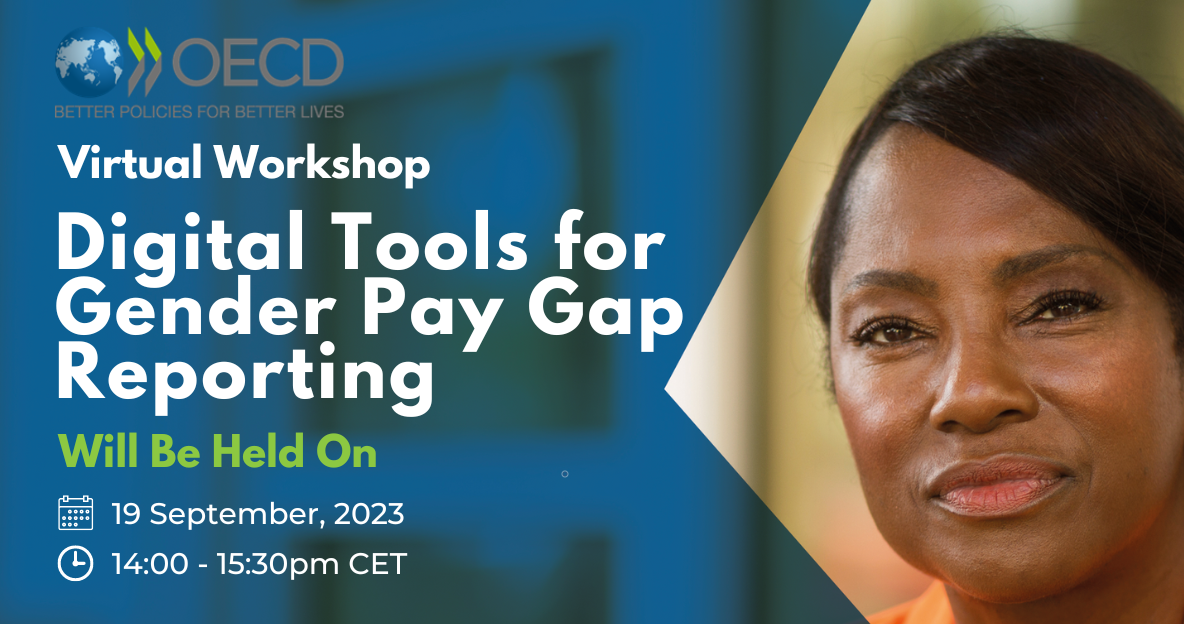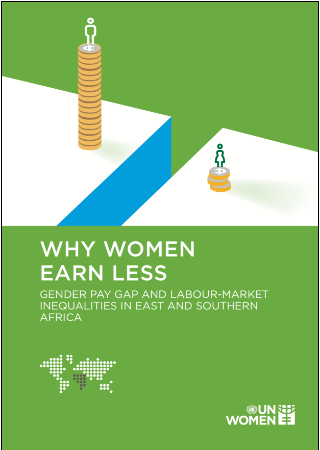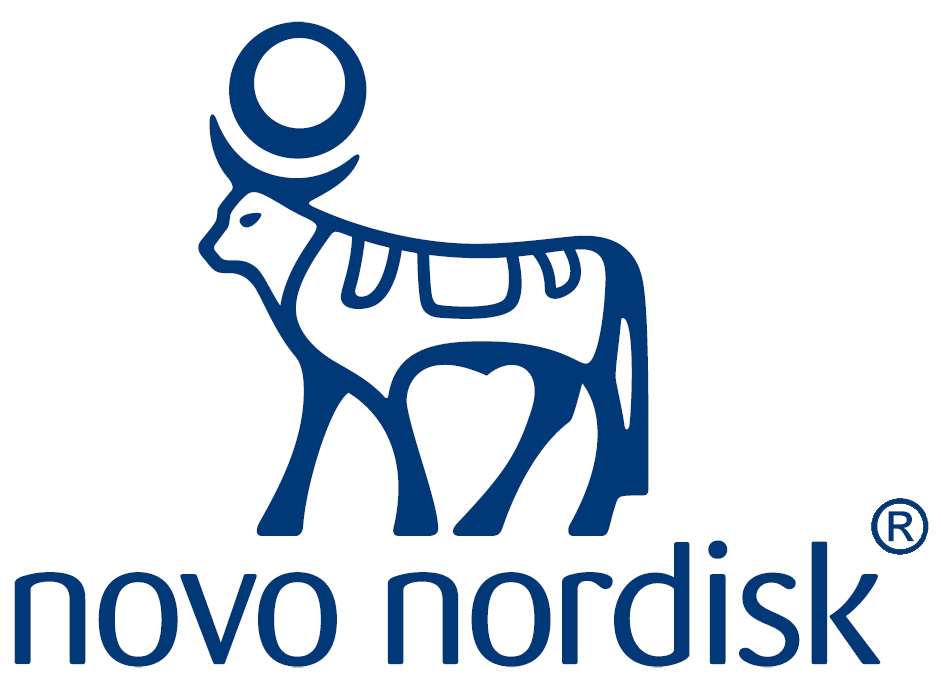OECD WEBINAR: ENFORCING GENDER PAY GAP REPORTING

OECD VIRTUAL WORKSHOP: DIGITAL TOOLS FOR GENDER PAY GAP REPORTING

EPIC-EMNET WEBINAR TOWARDS PAY EQUITY: HOW COMPANIES CAN MOVE THE NEEDLE THROUGH THE EQUAL PAY INTERNATIONAL COALITION

Leaders at the UN General Assembly pledge to reduce the gender pay gap
Leaders at the UN General Assembly pledge to reduce the gender pay gap
These commitments are expected to provide momentum in addressing the significant pay disparities between men and women, with initiatives ranging from funding apprenticeship programs to expanding pay transparency efforts.
NEW YORK (ILO News) – The United States, Iceland, UN agencies, the Organisation for Economic Co-operation and Development (OECD) and other organizations pledged to reduce the gender pay gap at an event on 18 September at the UN General Assembly in New York, organized by the Equal Pay International Coalition (EPIC).
EPIC aims to achieve equal pay for women and men everywhere. It helps governments, employers, workers, the private sector and civil society organizations take actions to meet this goal at global, regional and national levels – in line with the International Labour Organization’s (ILO) Equal Remuneration Convention, 1951.
The pledges will provide momentum towards reducing gender pay disparities. According to the ILO Global Wage Report 2018/19, women earn on average about 20 per cent less than men, although there are wide variations across countries.
US Deputy Undersecretary for International Affairs, Thea Lee outlined the actions the Department of Labor would take: “With the aim of disrupting occupational segregation and combating pay inequality and compensation discrimination, in 2023, the U.S. Department of Labor is funding up to 14 grants totalling up to $5 million to attract and support women in accessing Registered Apprenticeship programs in high-growth, high-wage industries where they are underrepresented, such as construction, manufacturing, and cybersecurity.”
The Prime Minister of Iceland, Katrín Jakobsdóttir, also pledged to take action: “The Icelandic government pledges to keep on the work on the implementation of the Equal Pay Standard, as well as working on Equal Pay Confirmation where applicable (companies with less than 50 employees). The goal is the elimination of the gender pay gap.”
Olena Zelenska, the First Lady of Ukraine, also shared inspirational words on the need to accelerate action on gender equality: “Ukraine was progressing in equal level of remuneration for women and men. War changed this, but the state is not losing its course. Ukraine is fighting for common values — and together we can do it more efficiently.”
Representatives from the three international organizations that lead EPIC – the ILO, UN Women and OECD – stressed the steps they would take to help reduce the gender pay gap.
The ILO will leverage a system-wide approach through the Global Coalition for Social Justice to further accelerate progress towards Target 8.5 of the SDGs; update the EPIC Global Legal Database with the latest available equal pay information; and expand the EPIC network with a goal of attracting an additional 18 members, bringing membership to 75 from 57,” said ILO Director-General, Gilbert F. Houngbo.
Sima Bahous, Executive Director of UN Women, said the agency will “continue to work with governments, civil society, and the private sector to reduce the gender pay gap in over 20 countries worldwide including through our Gender Equality Accelerator. We will also continue to mobilise and advocate for equal pay, work of equal value and entrepreneurship with our women’s economic empowerment principles at the core of our interventions.”
“OECD will expand the work on pay transparency. This includes the publication ‘Reporting Gender Pay Gaps in OECD Countries’ and related policy briefs, and workshops on digital tools for pay gap reporting and compliance with reporting rules” said Ulrik Knudsen, OECD Deputy Secretary General.
EPIC works with partners to raise awareness, share knowledge, encourage innovation, and scale up initiatives and programmes that have already yielded positive results.
UN WOMEN EAST AND ESARO LAUNCH THE REPORT ‘WHY WOMEN EARN LESS: GENDER PAY GAP AND OTHER LABOUR MARKET INEQUALITIES IN EAST AND SOUTHERN AFRICA’
UN WOMEN EAST AND ESARO LAUNCH THE REPORT ‘WHY WOMEN EARN LESS: GENDER PAY GAP AND OTHER LABOUR MARKET INEQUALITIES IN EAST AND SOUTHERN AFRICA’
UN Women East and Southern Africa Regional Office (ESARO) launched the report ‘Why Women Earn Less: Gender Pay Gap and Other Labour Market Inequalities in East and Southern Africa’. This is a landmark study that sheds light on the persistent challenges women face in the labour market across the region. The study used data from 10 countries – Ethiopia, Kenya, Malawi, Mauritius, Mozambique, Namibia, Rwanda, Tanzania, Uganda and South Africa – and found that women only earn 81 cents for every US dollar earned by men in the region, on an hourly basis. Considering other factors that determine pay, such as age, education, marital status and type of job, women earn 92 cents less for every dollar that men earn per hour. Because women work for lesser hours in paid employment than men, on a monthly basis, women earn 68 cents for every US dollar that men earn. The report also found striking sectoral and occupational segregation by gender, and evidence of a glass ceiling.
The findings of the report were first unveiled at an Equality Café, held on 12th September in Nairobi. Equality Café is a forum facilitated by UN Women for collaboration among journalists and influencers, and it serves to train, inform, discuss, and foster media partnerships that promote gender equality. The event featured a panel discussion with experts from ILO, Stanbic Bank, National Media Group, and the State Department of Gender and Affirmative Action, Government of Kenya. They discussed strategies for addressing the gender pay gap. The event was a success with attendees from ALN Academy, Radio Africa, Trans World Radio, Capital FM, and KBC, amongst others. The event gained coverage by Capital FM and Trans World Radio.
Find out more from this Expert’s Take.
PARLIAMENTARIANS PLEDGE TO TAKE ACTION IN ELIMINATING DISCRIMINATION AGAINST WOMEN IN THE WORKFORCE
PARLIAMENTARIANS PLEDGE TO TAKE ACTION IN ELIMINATING DISCRIMINATION AGAINST WOMEN IN THE WORKFORCE
Equality at work was a key area of focus of a parliamentary roundtable that brought together 35 members of parliament from 23 countries on 22 June 2023. During the roundtable, organized by the Inter-Parliamentary Union (IPU) and the Office of the High Commissioner for Human Rights (OHCHR), MPs joined forces in a pledge to revitalize action to uphold women’s rights.
The roundtable was organized as part of the year-long Human Rights 75 Initiative to commemorate the 75th anniversary of the Universal Declaration of Human Rights (UDHR).
Photo one: Participants at the June 2023 parliamentary roundtable reaffirmed the centrality of parliaments in leading a feminist policy agenda, including in the area of work. © Pierre Albouy/OHCHR.
Debates focused on the centrality of parliaments in advancing women’s rights to political participation, decent work and education on an equal basis with men, as laid down in the UDHR and codified within the Convention on the Elimination of All Forms of Discrimination against Women (CEDAW). Specifically, participants looked into how these rights are interconnected, as well as how existing gender-based discrimination and inequalities in these three areas intersect with other forms of inequality and grounds for discrimination. During the discussions, participants reaffirmed how women’s equal access to decent work and equal pay are fundamental elements in meaningfully redressing structural inequalities and reaching the SDG targets on time while highlighting the detrimental role of stereotypes and traditional gender roles, which often lead to limited access to social protection and lower pay for women.
Gender-based segregation in the workforce, particularly in care-related roles, was highlighted as a key factor in perpetuating inequality. Participants highlighted that motherhood is still considered a disadvantage for the workforce, being a main contributor to the gender pay gap, whereas fatherhood is largely rewarded. Focusing on parliaments, participants discussed the need to develop and implement strategies that mainstream gender sensitivity at all stages of the legislative process, including through gender-responsive budgeting.
Against this backdrop, parliamentarians participating in person and online agreed unanimously on a set of concrete pledges and recommendations, which will bring the voice of parliaments to the Human Rights 75 High-Level Event, scheduled for December 2023.
Specifically, with a view to women’s equal access to decent work, parliamentarians pledged to:
i) Promote ratification of the Domestic Workers Convention, 2011 (No. 189) of the International Labour Organization and introduce or strengthen legislation to ensure access to social protection for women employed in the informal sector
ii) Introduce or strengthen legislation to ensure equal pay for work of equal value.
You can access the full text of the endorsed pledges via the following link
The roundtable debates reflected many of the points raised during the High-level Roundtable on Gender Equality in the Health and Care Workforce, organized as part of the Fifth Global Forum on Human Resources for Health (HRH) in April 2023. At that event, the IPU emphasized the need to 1) ensure equality in law, so that social protection, public services and infrastructure are gender-responsive, 2) address gender-based violence against women in the workplace, and 3) address the unequal share of unpaid household and care responsibilities as well as the gender pay gap.
Photo two: The adoption of the milestone 2022 Kigali Declaration during the 145th Assembly of the IPU. © IPU/Parliament of Rwanda
The roundtable also served as a complement to the IPU’s milestone 2022 Kigali Declaration, in which parliamentarians committed to advance efforts in transforming their parliaments into true gender-sensitive institutions through a concrete set of policy actions that enable parliaments to address structural discrimination and deliver for all. Among the five key policy actions, parliamentarians agreed to advance equality in caring responsibilities among men and women and set an example by undertaking 50% of the daily care work for their families, regardless of whether they are male or female MPs.
Updates from the Pay Equity Unit of the Canadian Human Rights Commission
Updates from the Pay Equity Unit of the Canadian Human Rights Commission
In June of this year, Lori Straznicky was appointed as Pay Equity Commissioner for a term of five years. She is enthusiastic about continuing to work with federally regulated employers who are leading the way in making pay equity a reality for women in Canada.
The gender wage gap remains a persistent issue in Canada, and it is imperative that we confront it head-on. In 2022, women over 15 years of age were still earning, on average, 0.87 cents for every dollar earned by their male counterparts.
Along with Commissioner Straznicky, the Pay Equity Unit reaffirms its unwavering support for both international and Canadian endeavors aimed at accelerating the pace of closing the gender pay gap and achieving true equal pay.
On International Equal Pay Day on September 18, 2023, various country representatives made pledges to advance the cause of equal pay. On that day, we reiterated that during the period spanning from 2023 to 2026, we pledge to further the objective of Canada’s Pay Equity Act, which aims to proactively redress gender-based discrimination in the pay practices and systems of employers. To this end, we commit to:
1. Continued participation with EPIC members to make concrete and coordinated progress towards the vision of equal pay for work of equal value in all countries and sectors.
2. Enforce compliance with pay equity requirements through the measures outlined in the Act.
3. Facilitate compliance by helping workplace parties address disputes early on in the process or by providing timely decisions in cases where they cannot be resolved; and,.
4. Create resources to build knowledge that helps workplace parties learn about their rights and obligations.
Together, we can move closer to a world where equal pay is not just a pledge but a tangible reality for all.
We invite you to read our latest Newsletter for complete updates on our latest initiatives.
Canadian Human Rights Commission
To learn about the work of the Pay Equity Unit of the Canadian Human Rights Commission, read our Pay Equity Newsletter attached below.


